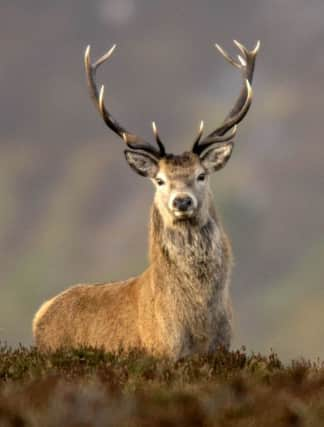Deer legs could help get salmon to return


The scheme is being trialled at the River Muick, in the Grampian Mountains of Aberdeenshire.
Legs from the deer are being placed in clusters at various points along the river.
Advertisement
Hide AdAdvertisement
Hide AdIn the past, adult salmon would die and nutrients from their carcasses would help increase insect populations, providing food for younger fish.
However, with the number of adult salmon returning to the river from the sea plummeting, there is now a scarcity of food in the water.
It is estimated that for every 100 salmon which migrate from rivers, five return, whereas 40 to 50 years ago around 40 would have made it back.
The River Dee’s fisheries board and trust have partnered with the James Hutton Institute to test the impact of the initiative.
Ross Macdonald, fisheries development officer, said: “In times past when there were thousands and thousands of salmon in the river, there were lots and lots of carcasses which would provide nutrients to the aquatic environment.
“Over time, the number of adult salmon returning to Scottish rivers has dropped quite markedly, meaning the number of carcasses are declining as well.
“We have got bundles of deer legs placed in different clusters across the river, in different volumes, and plan to monitor the impact.”
The organisation will monitor the differences in numbers of young salmon via electro-fishing, a permitted process where a light current is used to stun the fish so they can be counted.
Advertisement
Hide AdAdvertisement
Hide AdLorraine Hawkins, river director for the board, said if the scheme does have an impact it should become apparent “quite quickly”.
“The idea of nutrient addition is commonplace in parts of North America,” she said.
“There was a similar project trialled in the River Conon in Ross-shire a few years ago but that involved fish pellets.
“We are doing a bit of that but using deer legs from the local estates, so it’s also a more sustainable way of doing it.”
Last summer anglers warned the heatwave threatened to plunge the industry into crisis, with water levels in some of the most popular salmon rivers falling to drastically low levels.
The Scottish Government imposed a ban on salmon-netting since 2016 to protect dwindling stocks. The practice involves fishermen using nets to harvest wild salmon as they migrate between the sea and Scotland’s world-renowned rivers.
